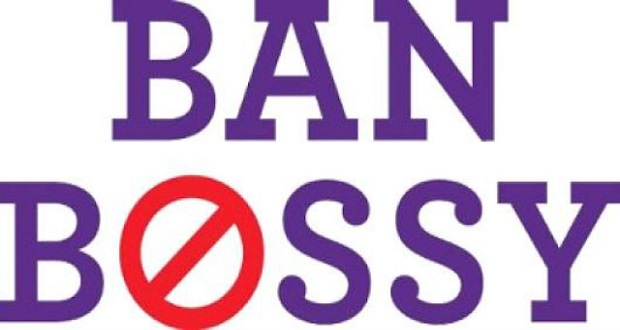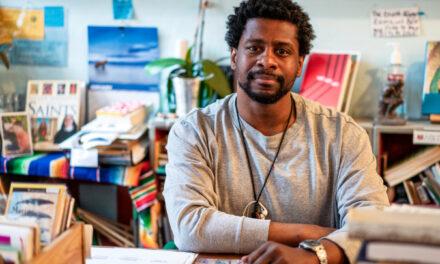
Words matter.
You probably heard about the new campaign kicked off earlier this week, spearheaded by Sheryl Sandberg (author of “Lean In”), to ban the word “bossy”. Sandberg’s organization Lean In joined forces with former Secretary of State Condoleezza Rice and Girl Scouts USA CEO Anna Maria Chávez to launch the public service campaign, “Ban Bossy.” Sandberg argues that the use of the negative put-down “bossy” stops girls from pursing leadership roles. From the Ban Bossy website,
When a little boy asserts himself, he’s called a “leader.” Yet when a little girl does the same, she risks being branded “bossy.” Words like bossy send a message: don’t raise your hand or speak up. By middle school, girls are less interested in leading than boys—a trend that continues into adulthood.
When I first heard about the campaign, it got me to thinking, have I ever been called “bossy”? The answer is yes, I was called bossy at a young age too. And like many, it did have a negative impact on me, it did discourage me from pursuing leadership roles. I wanted to be liked, I didn’t want to be known as “bossy”. It’s amazing how powerful one word can be.
Girls are twice as likely as boys to worry that leadership roles will make them seem “bossy.” According to one study done by the Girls Scout Research Institute, 1/3 of girls who don’t want to be leaders say it’s because they fear being called bossy or being disliked by their peers. This is a problem. We know the statistics. Women make up 50% of the US population, but only make up 5% of Fortune 500 CEOs, only 17% of board seats and represent only 19% of congress. Something has to change.
While there are many supporters of this new campaign, such as big name stars as Beyoncé and Jennifer Garner, there are also critics. When I first heard of the campaign I went to Twitter and did a search on the hashtag #banbossy to see what people were saying. There were many positive tweets with people jumping on board with the campaign. But there were also those who thought banning the word was going about it the wrong way.

Peggy Drexler, author of “Our Fathers, Ourselves: Daughters, Fathers, and the Changing American Family” and “Raising Boys Without Men” and assistant professor of psychology at Weill Cornell Medical College of Cornell University, also feels that Sandberg is wrong on the “bossy” ban. Drexler argues,
But while Sandberg isn’t wrong that “bossy” is disproportionately directed at girls and women, and usually with negative connotations, the problem isn’t the word itself, but how and when the word is used. Ban “bossy” and other words will spring up in its place: “B****y,” “cold” and “aggressive” come to mind.
Instead, the focus should be on how to reclaim the positive and indispensable nature of “bossiness,” turning it from a word used to describe the domineering and unlikable to one used to describe those very necessary qualities for those who lead.
Words are powerful. Whether we agree to completely ban words that discourage women from leading, such as “bossy”, or reclaim the positive connotations of the words – we can agree that something indeed needs to change. We need more women leaders and we are not going to get them if we continue applauding men for being “aggressive” and “assertive” and looking down on women for doing the same.
While the campaign won’t be enough to completely change things, it’s another piece to help us get there, and it’s helping to raise more awareness.
By instilling at a young age that it is okay for women to be leaders, hopefully we will see a shift in the percentages of women in leadership positions in the future. Together lets encourage girls (and women) to lead. I will #banbossy, will you?
I would love to hear your thoughts on the “Ban Bossy” campaign. Do you think Sandberg and company have the right idea to completely ban the word? Or do you think we need to find ways to reclaim the positive nature of “bossiness”? Enter your thoughts in the comments below!
















